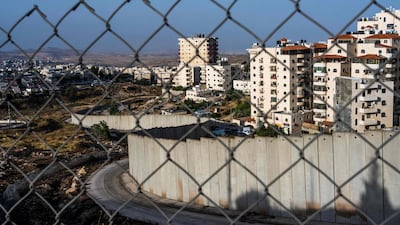UN Secretary General Antonio Guterres reiterated on Monday his opposition to Israeli settlements in the occupied West Bank and East Jerusalem, a day after the country's conservative government approved legislation to speed up their construction.
The Israeli plans centre on transferring responsibility for settlements from the defence minister to a dedicated role within the ministry, currently occupied by far-right Finance Minister Bezalel Smotrich, who also holds a second ministerial position in defence.
Mr Smotrich has also come under fire for anti-Palestinian racist remarks.
The minister belongs to a large bloc of pro-settler politicians that make up today's government, led by Prime Minister Benjamin Netanyahu. It is widely viewed as the most right-wing government in Israel's history.
Sunday's decision also involved government approval of more than 4,000 new settlement homes in the West Bank, which are illegal.
Mr Guterres said such projects are a “flagrant violation” of international law.
He added that they pose “a major obstacle to the realisation of a viable two-state solution and a just, lasting and comprehensive peace”.

Under the parameters of the two-state solution – the preferred means of ending the Israel-Palestine conflict among most of the international community – the territory that makes up the West Bank would be part of a country for Palestinians.
Critics of Israel's continuing settlement project say the outposts render the two-state solution increasingly impossible to realise, as it would involve removing 700,000 Israeli settlers who currently live in the territory, according to the UN.

Mr Guterres added that the Israeli government's decision “entrenches Israel’s occupation of Palestinian territory, encroaches on Palestinian land and natural resources, hampers the free movement of the Palestinian population, and undermines the legitimate rights of the Palestinian people to self-determination and sovereignty”.
Israel has long criticised the UN for what it calls bias against it. In 2022, the UN passed a historic resolution, despite intense Israeli opposition, to recognise the Nakba, which roughly translates as “catastrophe”, and describes the moment hundreds of thousands of Palestinians were forced to leave their homes upon the formation of the state of Israel.
In May, Israel, along with many of its international allies, boycotted the international organisation's commemoration of the day.
Mr Guterres finished his statement by calling on Israel to halt construction and reverse existing projects.


